~ねばならぬ is an archaic way of saying ~なければならない/~なければいけない/~ないといけない/~なくちゃ/~なきゃ. It expresses an obligation (“must” or “have to”).
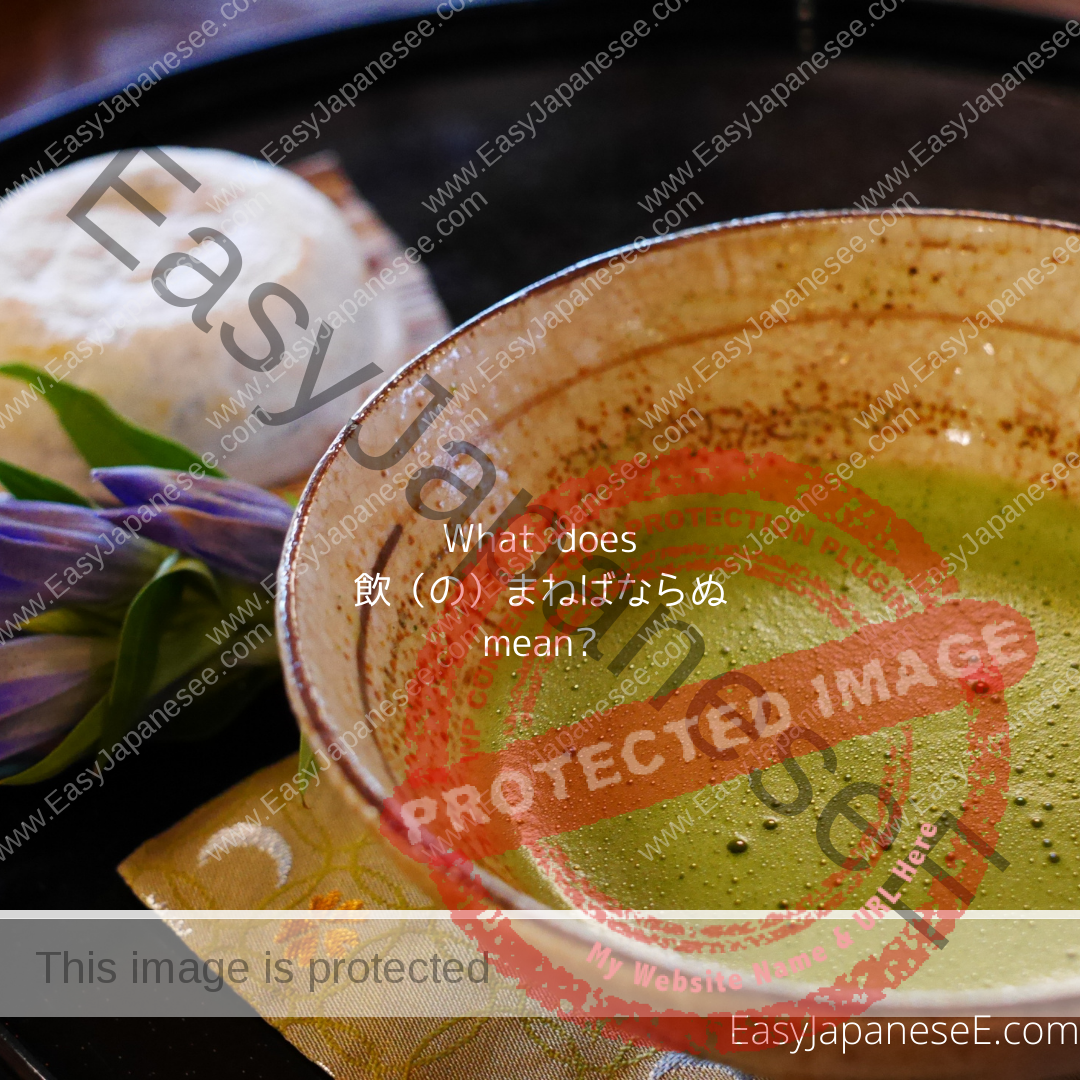

~ねばならぬ is an archaic way of saying ~なければならない/~なければいけない/~ないといけない/~なくちゃ/~なきゃ. It expresses an obligation (“must” or “have to”).
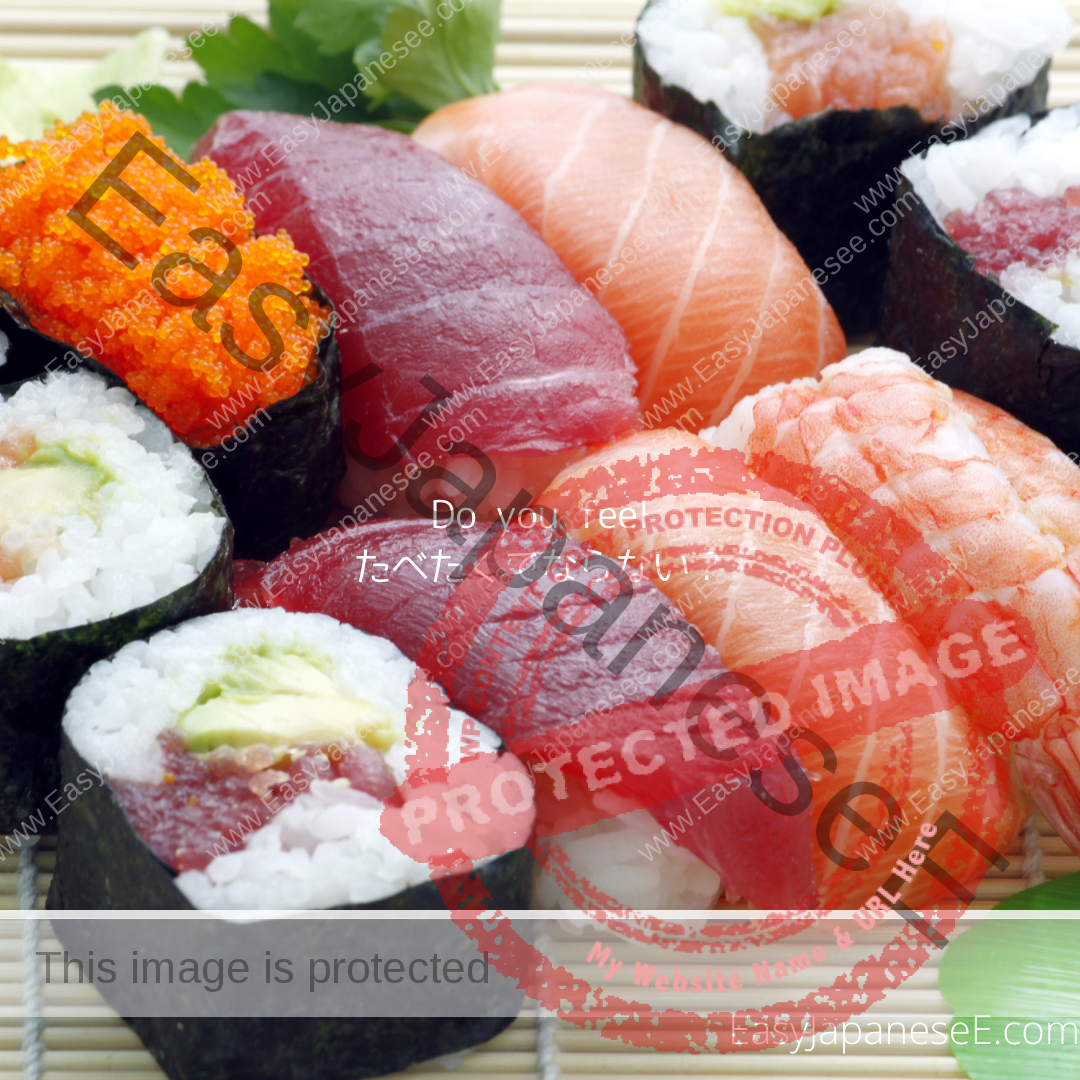
~てならない is used when you cannot help doing something because you have such a strong feeling or the situation is so compelling.
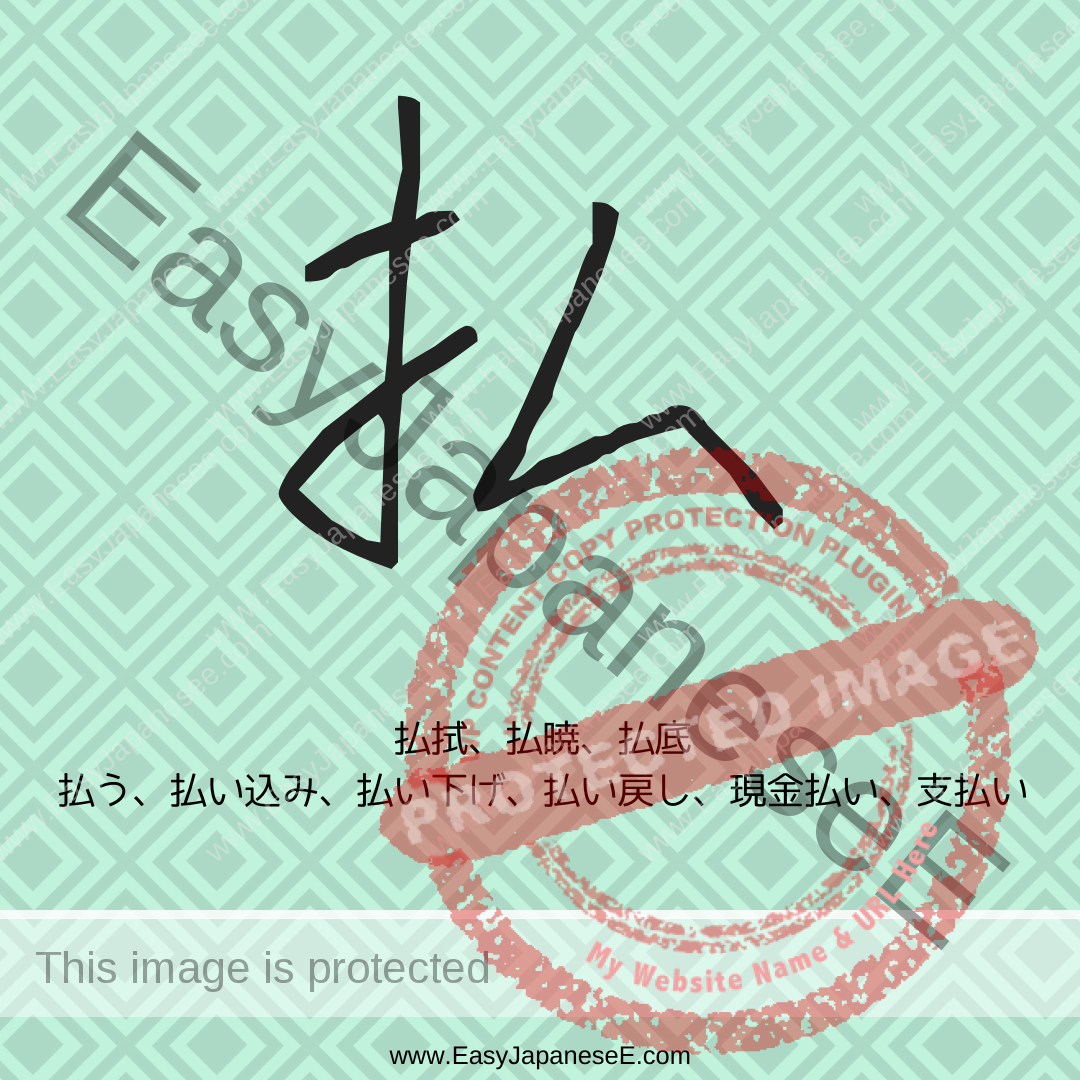
Today’s #kanji is 払, which is listed under its semantic element of #てへん(扌). 払’s original form is 拂 and 弗 is 払’s phonetic element.

~ている場合じゃない is used when you want to urge somebody else (or yourself) to stop doing ~ (and to start doing something else). “It’s not the time to be doing ~.”

っけ? is a very casual way of asking a question to confirm something you vaguely remember. It is rare to use it in a written passage.
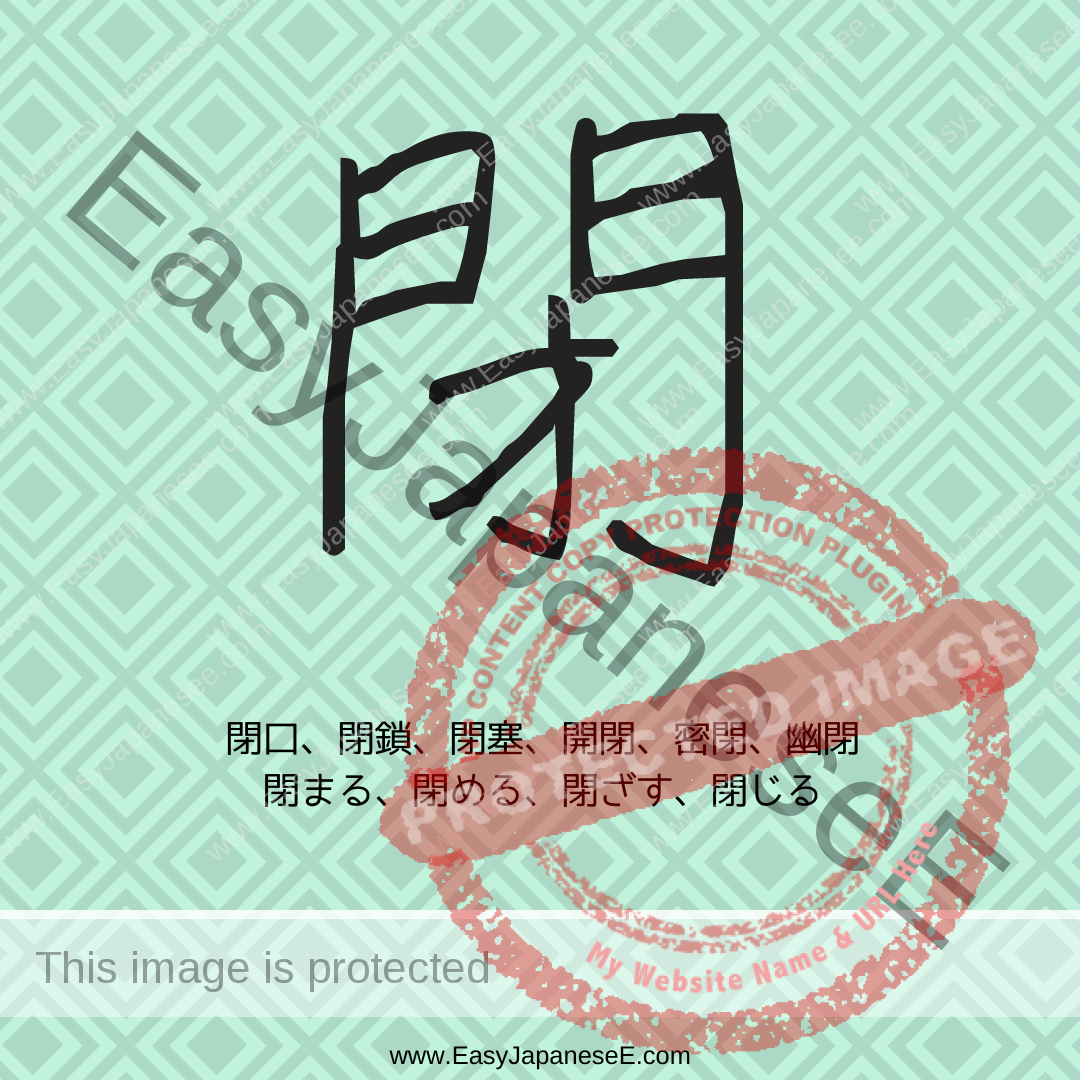
Today’s #kanji is 閉, which is listed under the radical of #もんがまえ(門). 閉 is apparently a pictograph depicting a gate being locked.

~だらけ is usually used in a negative concept meaning “full of something unwanted” or “covered with something undesirable.” Check the usage here.
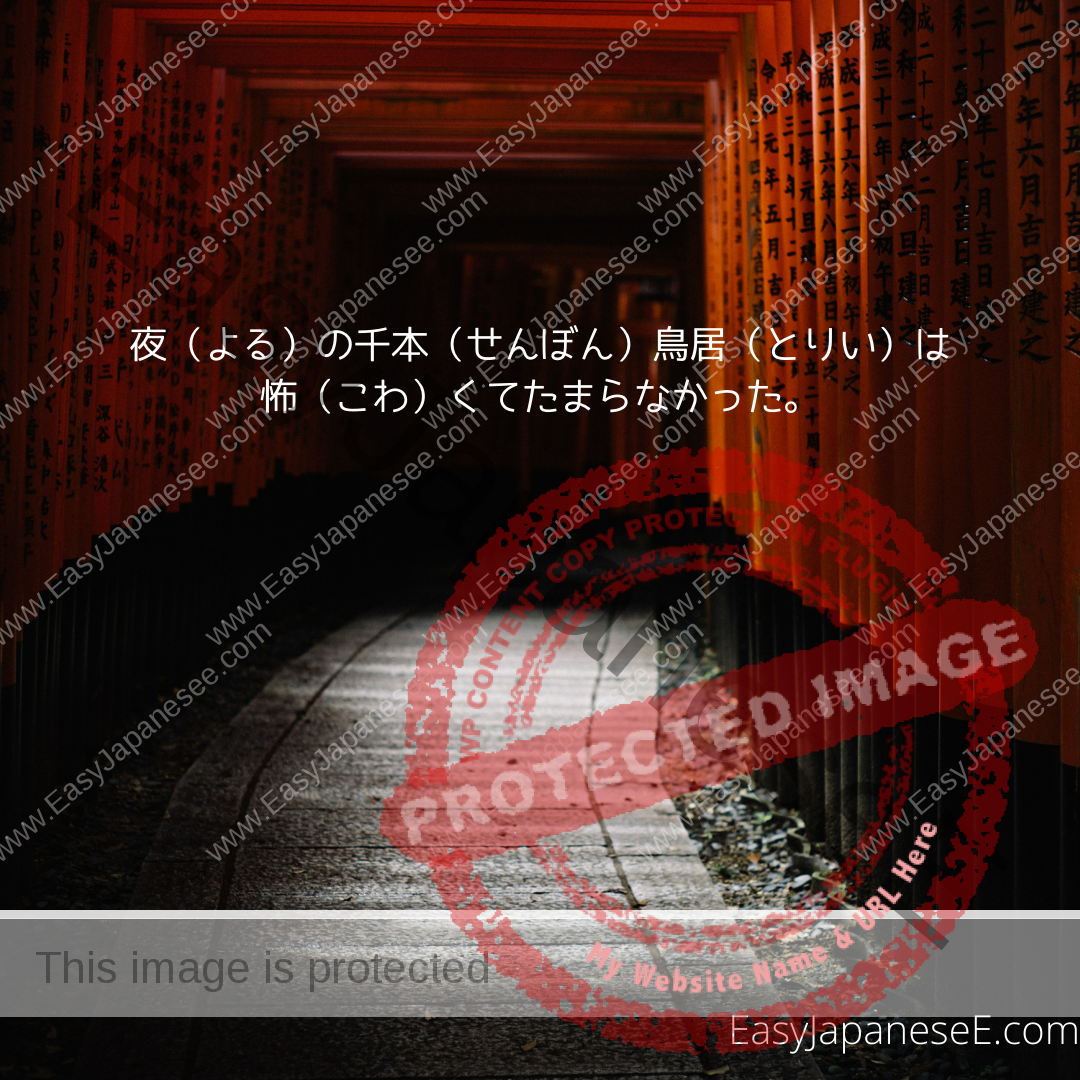
たまらない is used to describe something that is unbearable or irresistible. It is very often used with the てform of an adjective.
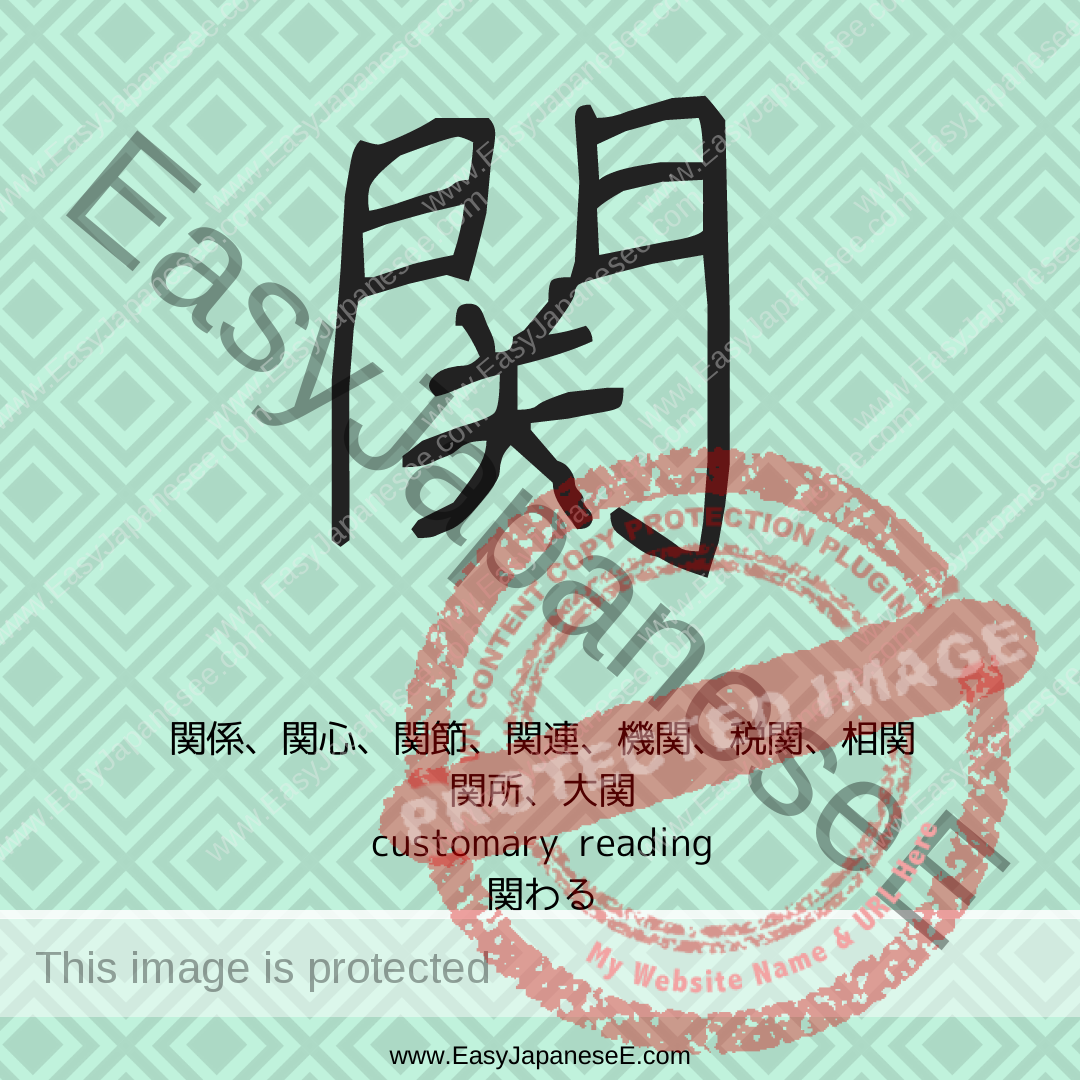
Today’s #kanji is 関, which is listed under its semantic element of #もんがまえ(門). 関 used to be written as 關 and what is written inside is the phonetic element.
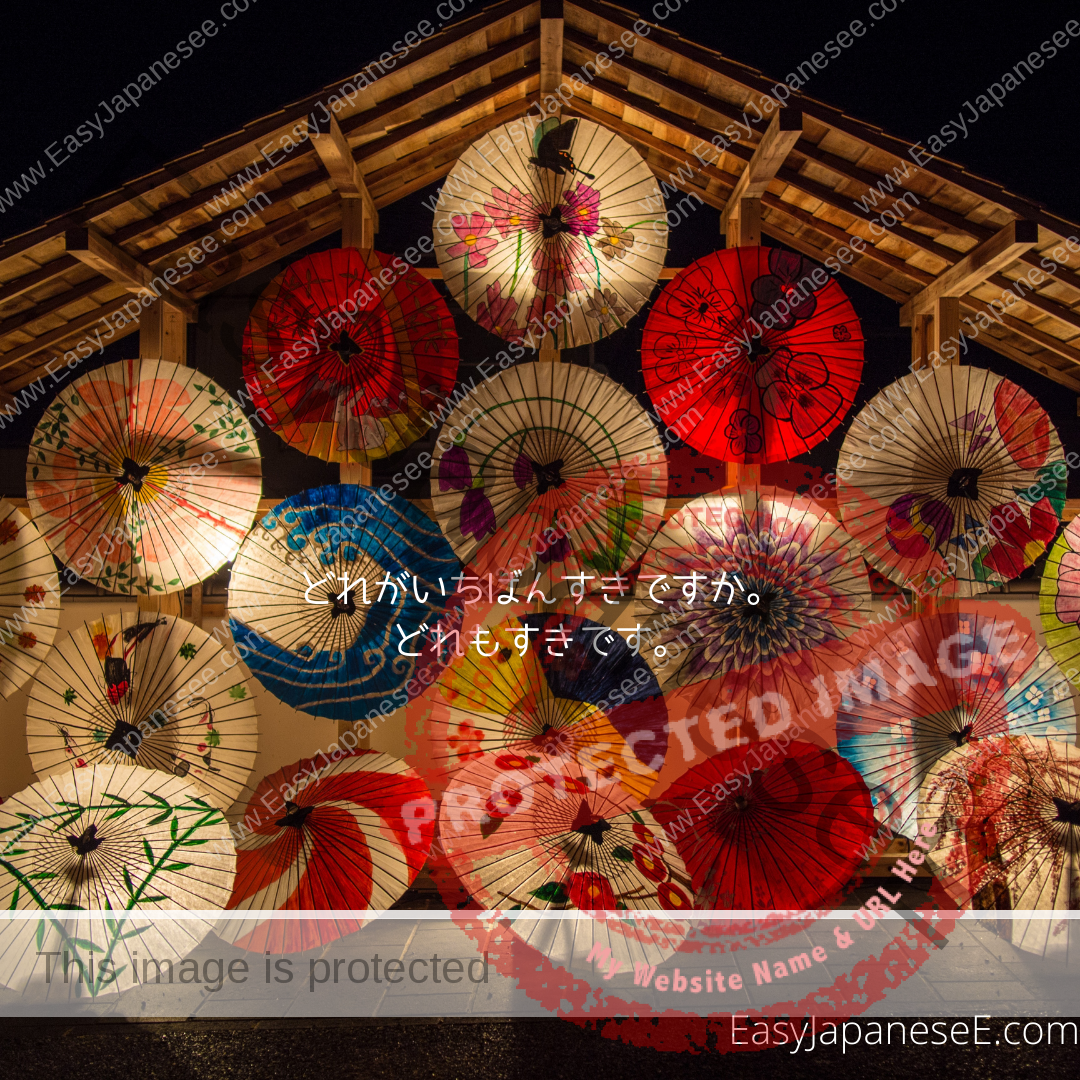
Adding か after a question word makes it an indefinite pronoun like “some…”. Adding も makes it “any…” but you need to be careful combining with a particle.

If you add か after question words, いつ、どこ、だれ、なに、なぜ、どう, いつか、どこか、だれか、なにか、なぜか、どうか become an indefinite pronoun, sometime, somewhere, someone, etc.
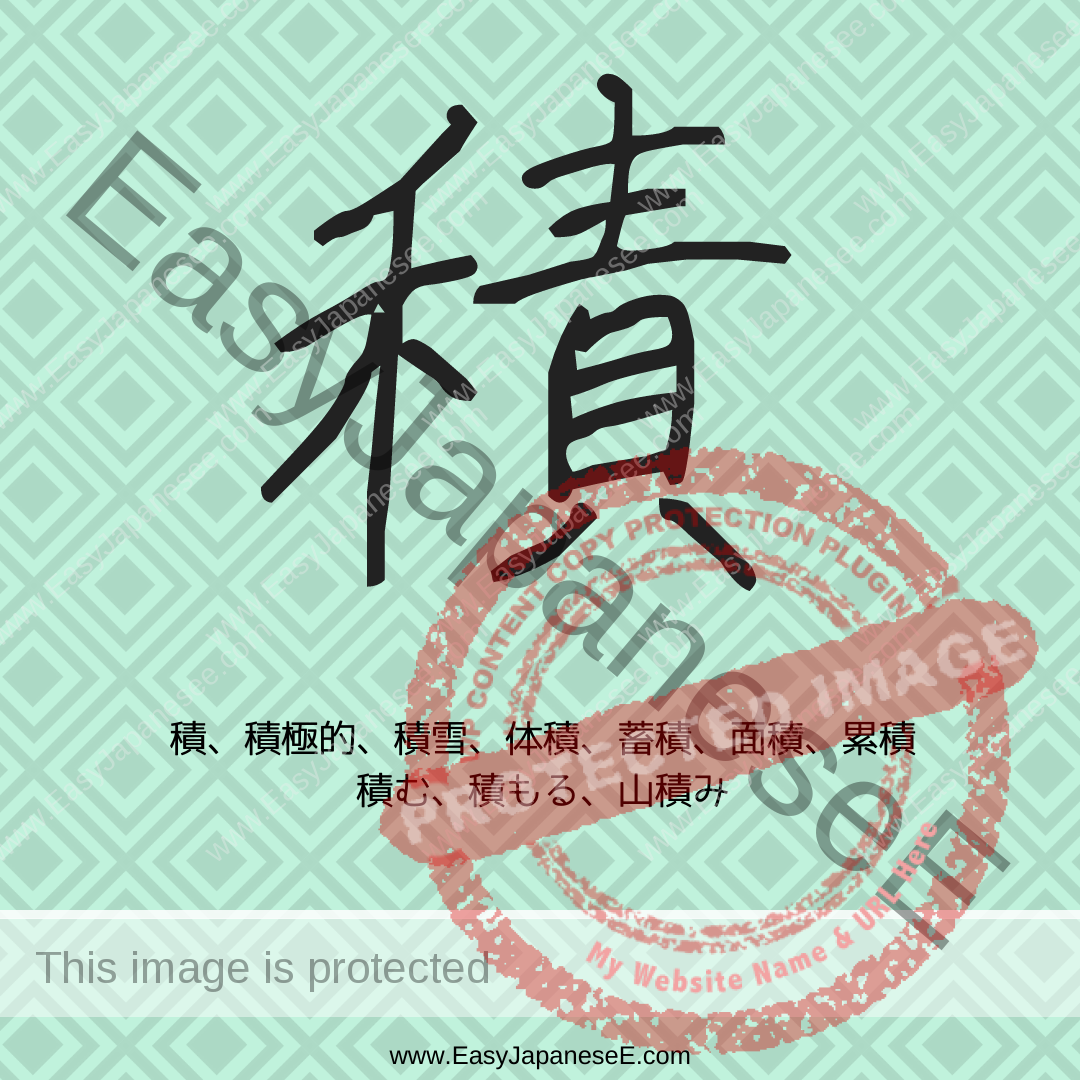
Today’s #kanji is 積, which is listed under its semantic element of #のぎへん(禾). Its phonetic element is 責. There are 2 x 2 ways of reading it.
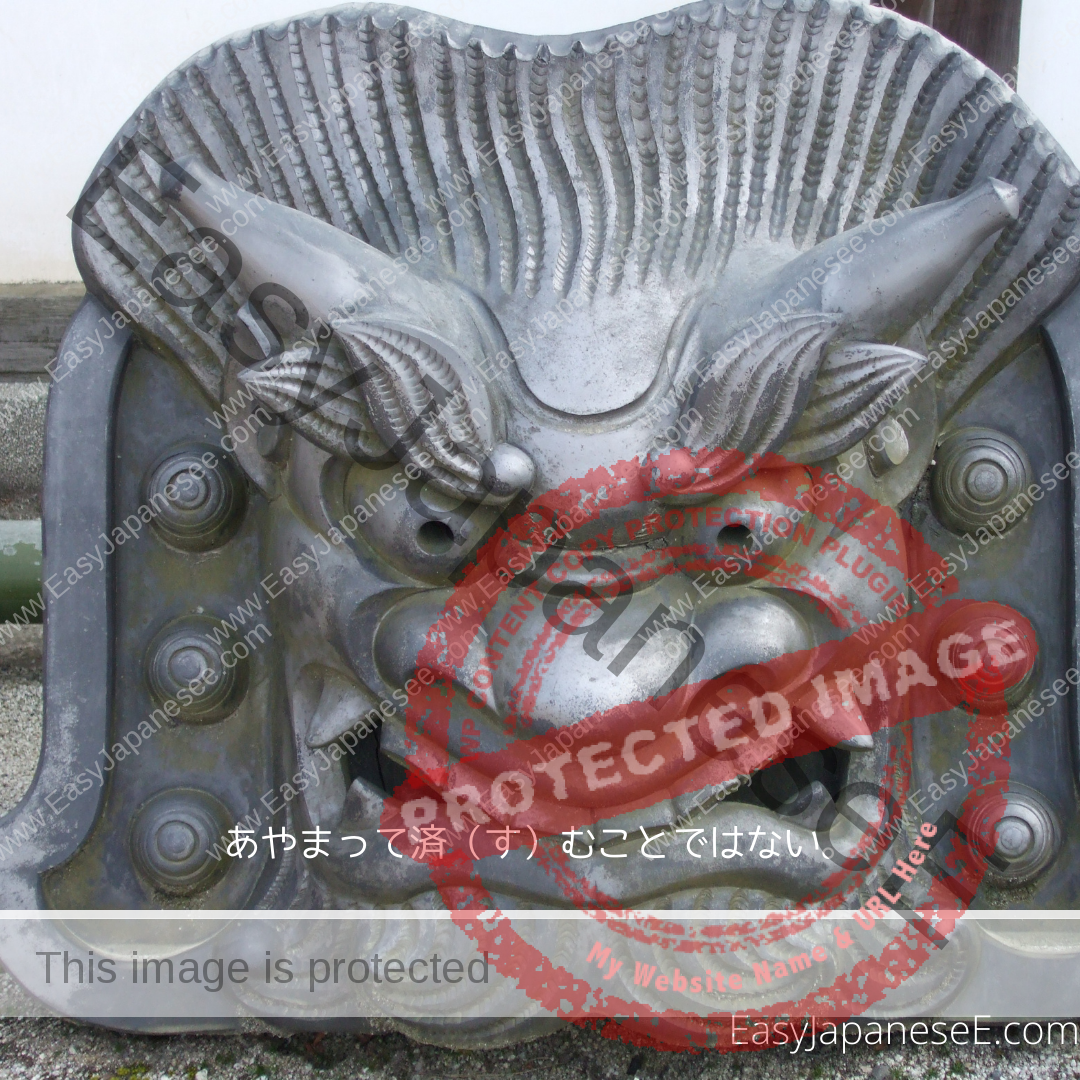
すむ(済む) has a few meanings but if it is used after a てform verb/adjective or a noun + で, ~て/で すむ means “to be settled with/by ~” or “~ is enough to…”
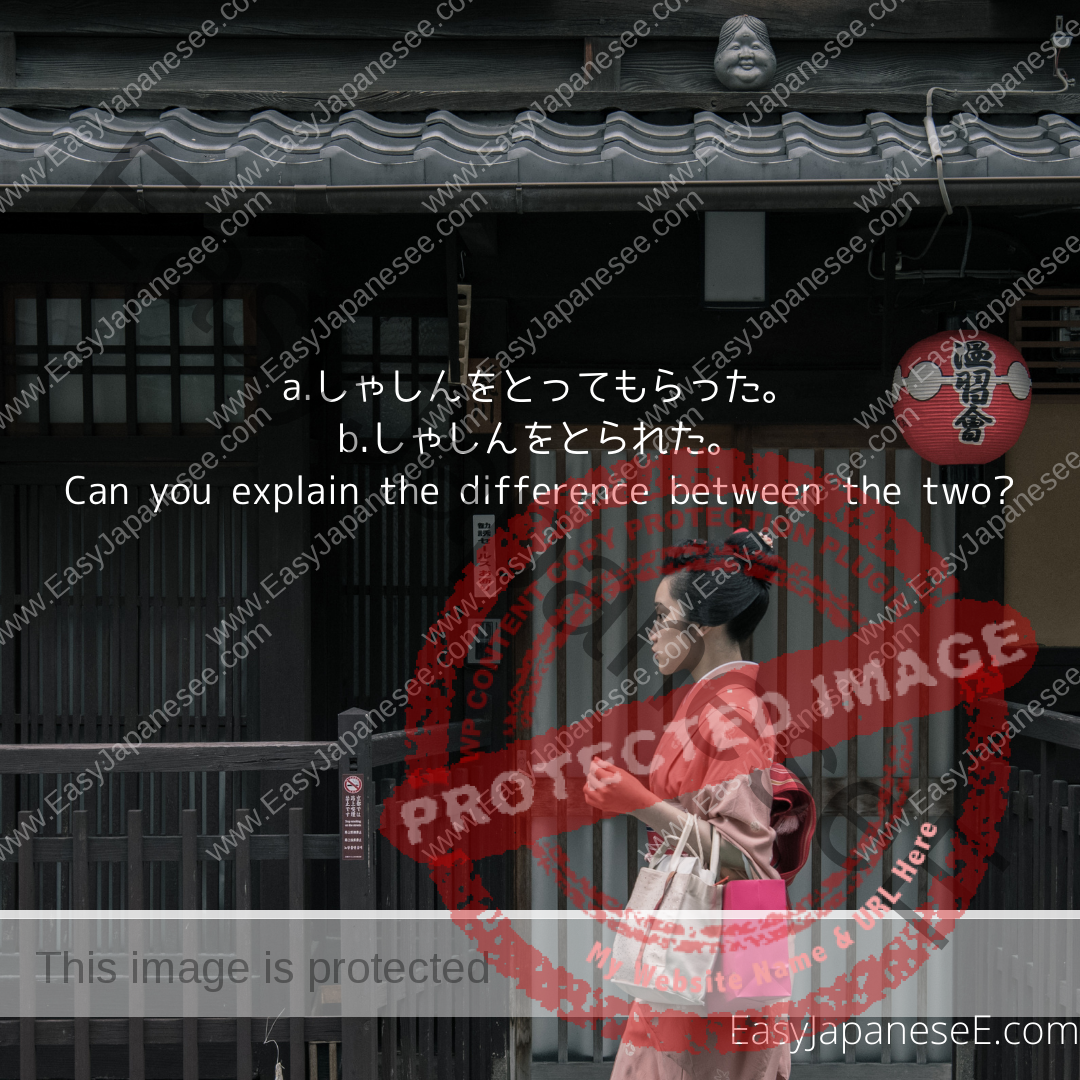
~-aれる/~られる is the passive form of a verb which is like “I was laughed at.” Japanese passive is quite different of that in English. Read the explanation here.
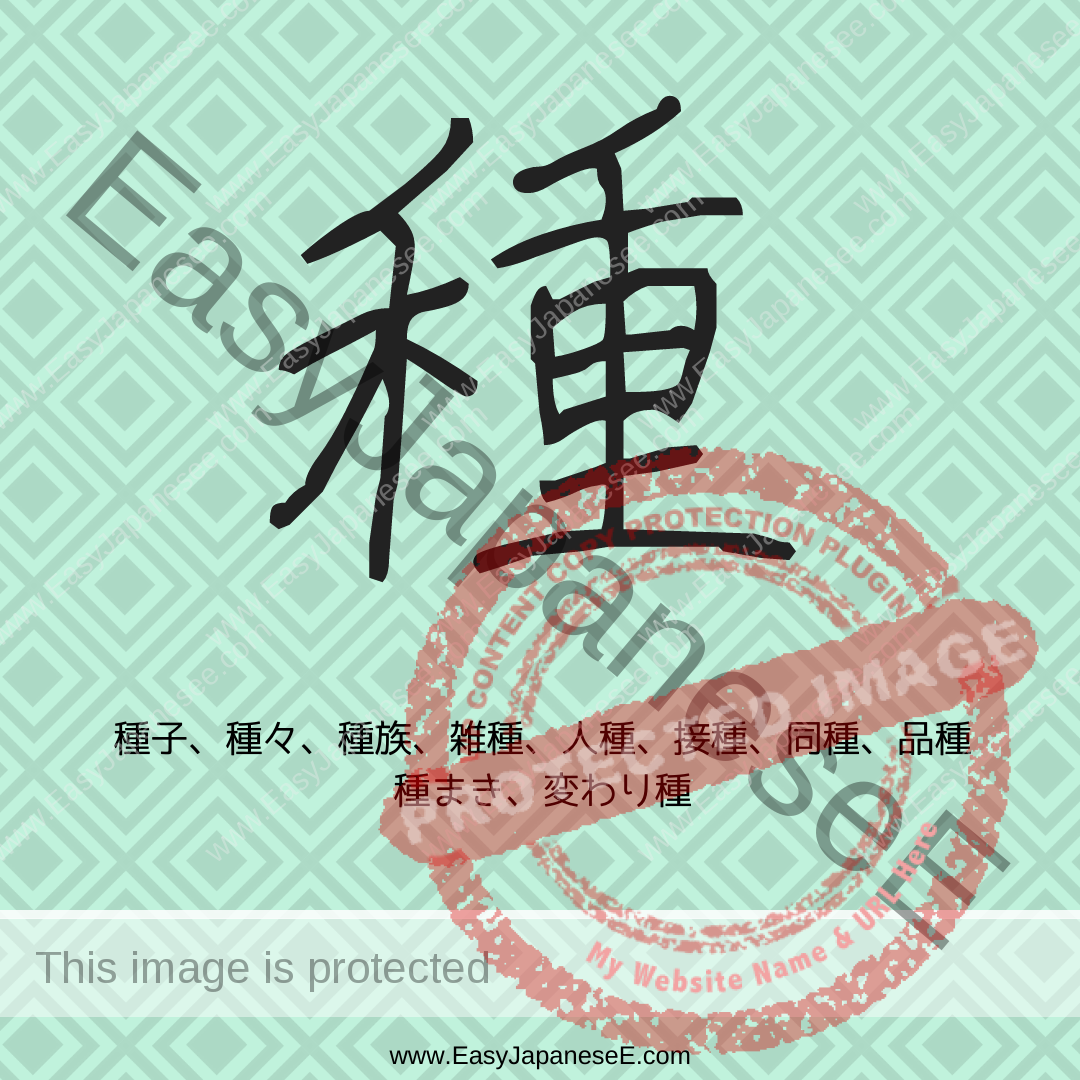
Today’s #kanji is 種, which is listed under its semantic element of #のぎへん(禾), Its phonetic element is 重 although 種 and 重 don’t exactly share a sound.
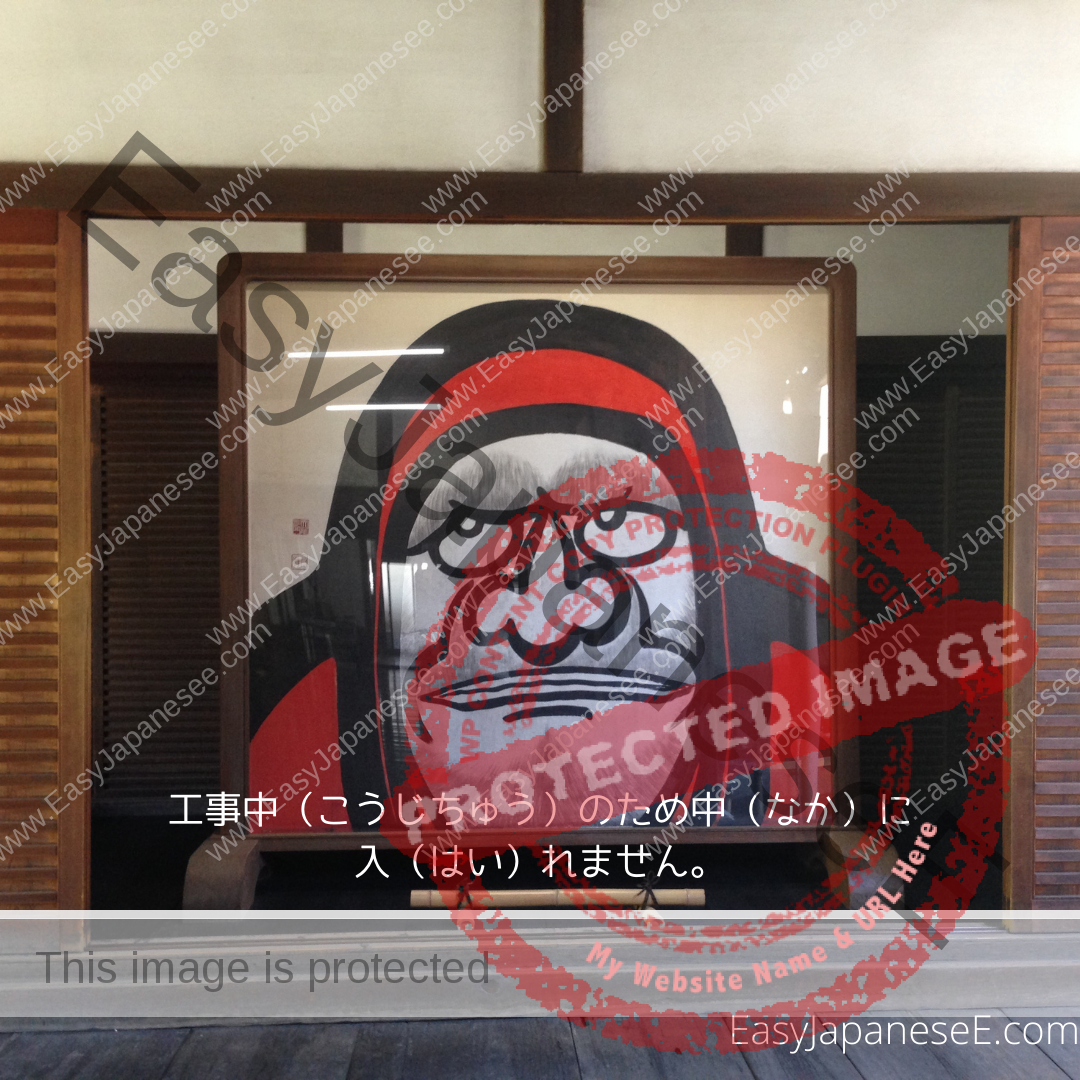
We have learned ~ため(に) to express a purpose before but today’s ~ため(に) is for describing a reason or cause. Check out examples here.

~たまえ is a rather old fashioned expression used for a request. I hear ~たまえ used in prayers often but I don’t hear it in everyday conversations very often.
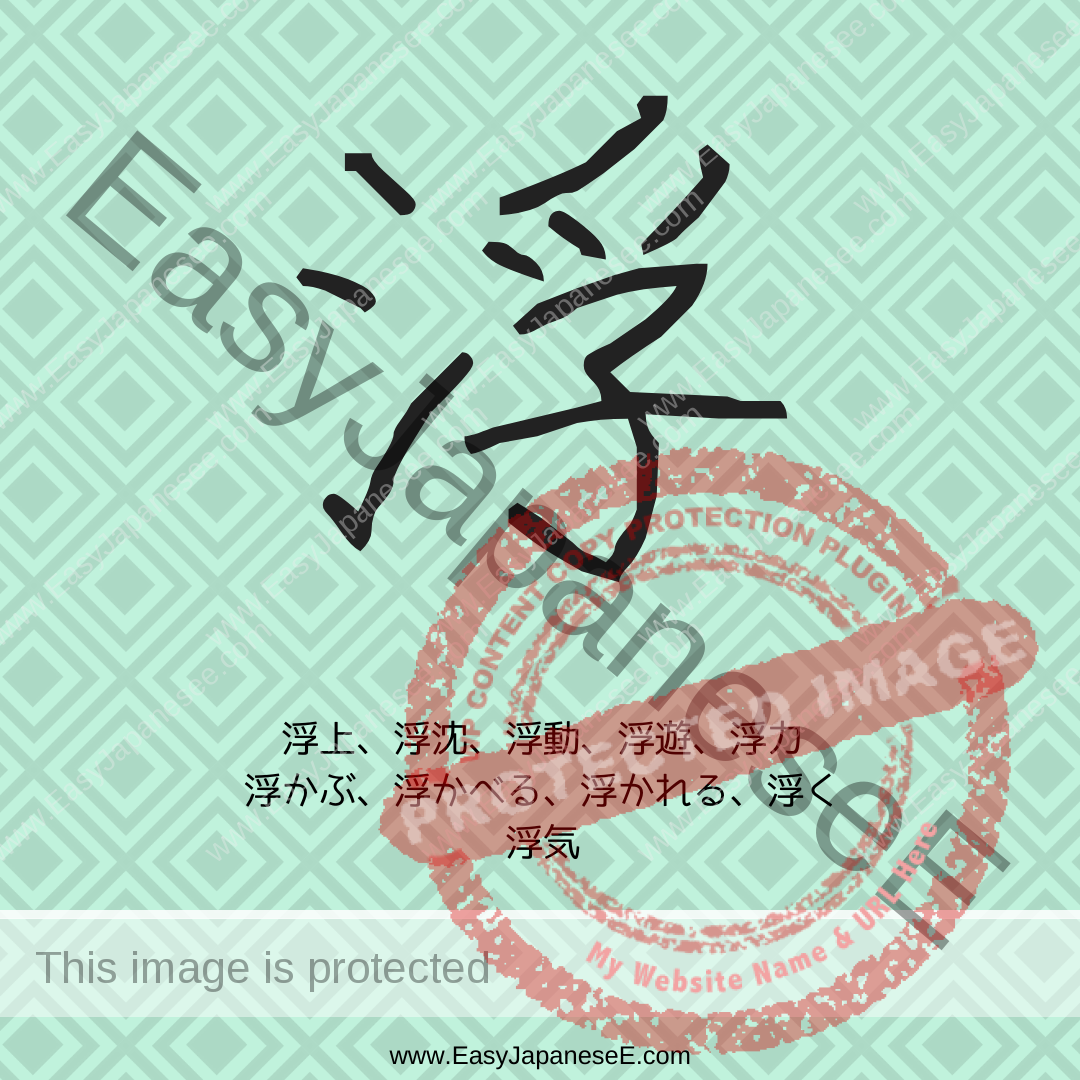
Today’s #kanji is 浮, which is listed under its semantic element of #さんずいへん(氵). Its phonetic element is 孚. 孚 is not listed in the everyday use kanji.
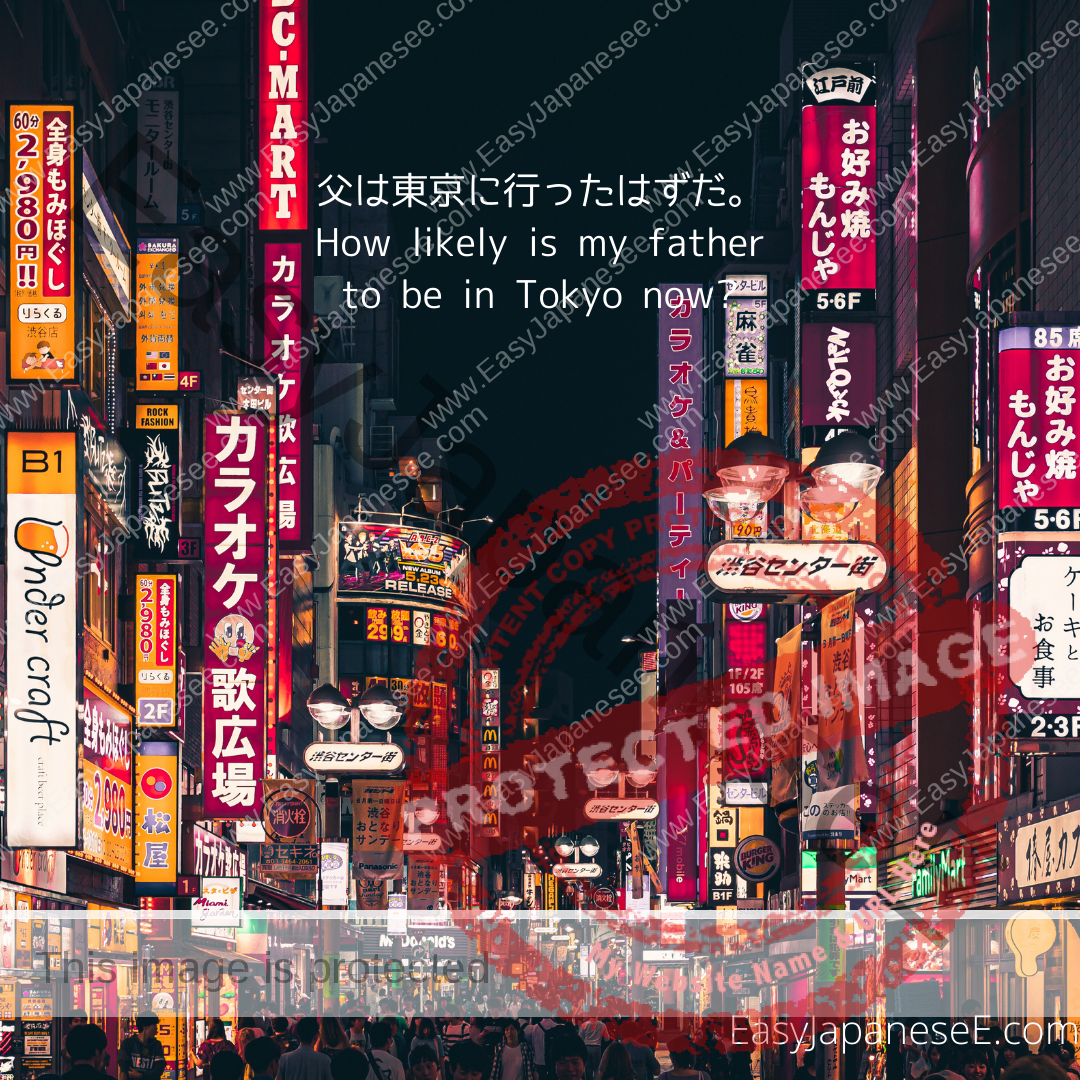
~たはず describes an action which should have taken place but actually didn’t and ~たはず often implies the speakers surprise or regret.
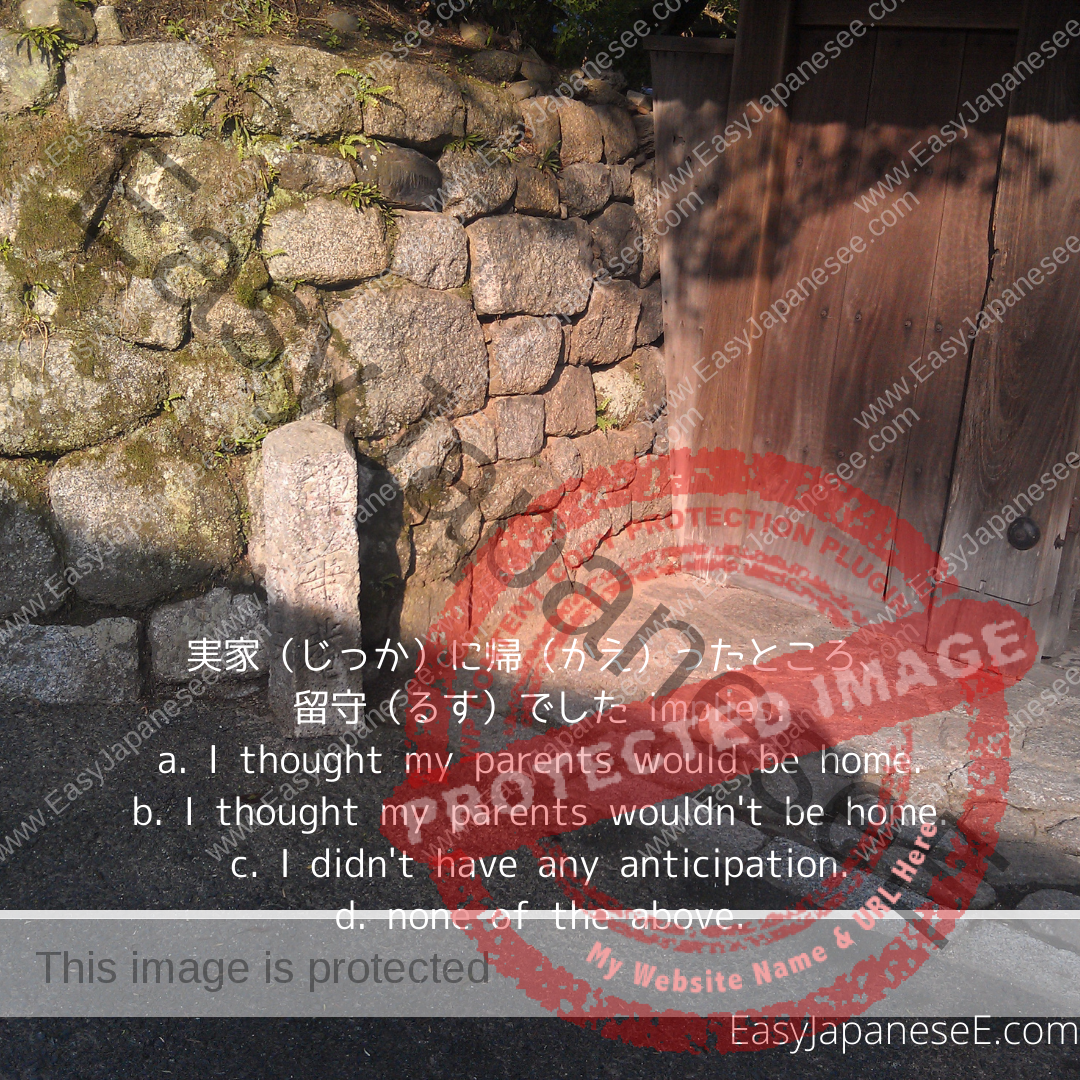
~たところ is an expression used to specify a time/occasion in the past when the speaker discovered something unexpected or contradictory to their anticipation.
